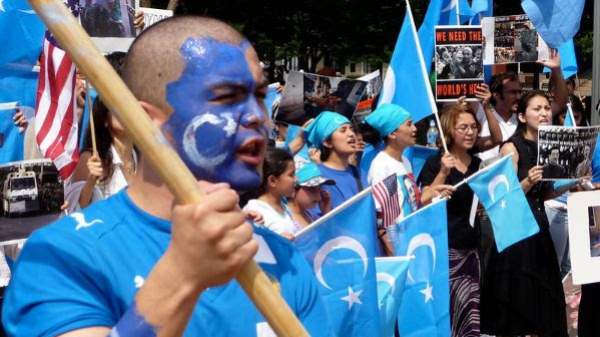Swiss NCP misses the mark on UBS links to mass surveillance of Uighurs

On January 28th the Swiss National Contact Point (NCP) for the OECD Guidelines accepted the specific instance filed by the Society for Threatened Peoples (STP) against Swiss Bank UBS related to the bank’s business relationship with Hikvision, a company that is aiding China’s mass surveillance and genocide of Uighurs. This is the first OECD NCP complaint to focus on a financial institution’s asset management business and passive products. Up until now, the NCP procedure has focused on asset owners’ direct shareholding or banks’ mainstream lending.
In its assessment, the Swiss NCP concluded that “a direct link between UBS’s products and services and the alleged human rights violations could not be excluded”. The Swiss acceptance of the case is significant because it represents the first time an NCP has recognized the responsibility banks have for their passive investments through indexed funds. In recent years, the asset management industry has seen a significant shift towards passive investment strategies, by which funds are typically invested in an index rather than in actively traded shares. Currently, over USD 10 trillion is invested in passively managed funds globally, so the recognition of banks’ responsibility for addressing impacts caused by these investments is important.
However, on a second element of the complaint, the Swiss NCP concluded that no business relationship between UBS and Hikvision exists in relation to UBS’s role as custodian for Hikvision shares on behalf of clients. This is despite UBS holding the title of the Hikvision shares, being listed publicly as the owner, and allowing its client (the ‘beneficial owner’ of the shares) to invest in the company in secret. According to research by the STP, UBS has maintained a business relationship with Hikvision since 2016. The bank is involved in the technology company through investment products and services as well as manages shares in the name of unknown investors as a “nominee shareholder”.
However, in regard to UBS acting as a nominee shareholder of shares in Hikvision, the NCP stated: “Based on the information received from UBS, the Swiss NCP concludes that UBS is not an investor in Hikvision but acts as a custodian of Hikvision shares on behalf of its clients and does not actively advise clients to buy Hikvision shares. The mere management of clients’ shares as a custodian implies a business relationship between the bank and its clients, but not with Hikvision.”
Worrying misinterpretation
This decision represents a worrying misinterpretation of the spirit of the OECD Guidelines and the UN Guiding Principles, which contain an expansive definition of business relationships: “Business relationships refer to those relationships a business enterprise has with business partners, entities in its value chain and any other non-State or State entity directly linked to its business operations, products or services.” The expansive definition of business relationships is intended to increase the scope of an enterprise’s responsibility beyond its own operations and activities to its value chains as well. In this case, UBS provides a service that is an essential part of the investment value chain, allowing the bank’s clients to invest in Hikvision.
In acting as custodian or nominee shareholder, UBS holds the title to the Hikvision shares and is listed as the owner in Hikvision’s own annual reports. Its client, the beneficial owner of the shares, remains invisible. As such, UBS is not only helping its clients to invest in Hikvision but also helping them to do so anonymously. The fact that the bank enables its client to hold these shares in secret – in this case, in a company that is aiding mass surveillance of China’s Uighurs, including in detention camps, in what has been described as genocide – adds an additional layer of importance to what UBS does. This is a valuable service for clients, who otherwise may not dare to make those investments.
Furthermore, the Swiss NCP’s decision does not sufficiently account for specific Chinese market conditions which mean that the only way a foreign investor or shareholder can invest in Chinese companies is via an index fund or a depositary bank. Services such as the holding of nominee shareholdings are therefore a basic prerequisite for market access in China.
Perverse incentives
For the Swiss NCP to imply that UBS has no responsibility in this regard is deeply problematic. It creates a massive, and easy, escape route for investors to avoid application of the OECD Guidelines. It clearly sets up perverse incentives whereby more investors might choose to reorganise their shareholdings this way, making it impossible for stakeholders and rightsholders to identify who they should actually be targeting when seeking to address adverse impacts and those responsible for them. More banks might offer these services essentially as a way to screen out linkage and avoid taking any responsibility despite their crucial role in the value chain.
OECD Watch and BankTrack call on the OECD to clarify the issue of business relationships in the situation of nominee shareholders and urge the Swiss NCP to reconsider its position in light of the spirit of the OECD Guidelines and UNGPs.
